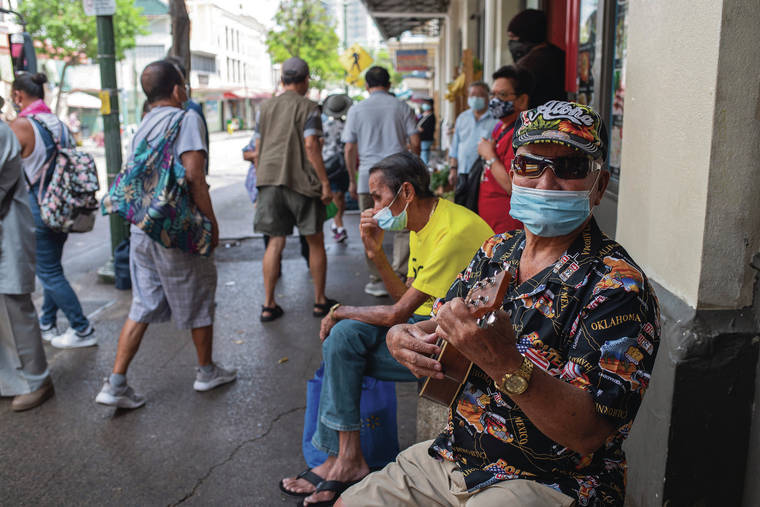Editorial: All residents have to fight against the Delta variant
[ad_1]
Many Hawaiian residents had COVID-19 on their minds as a new, momentous week began, sparked by a surprising surge in case numbers due to the spread of the highly contagious Delta variant. Over the weekend, the positive test results had risen well over 400 and fell to 365 on Monday, dominated by the 222 on Oahu alone.
Some of those on the state’s most populous island were at a free testing site at Daniel K. Inouye International Airport on a program that lasted this week and possibly longer for residents of Oahu. Others went to drugstores to shop for commercial home test kits to check their infection status.
Unfortunately, others have been hospitalized, and although officials said the patients were younger and less seriously ill than they were at the height of the pandemic, it still gave relatives a concern.
And with the school opening up to face-to-face learning today, the rise in infections has also created great anxiety in families with children returning to class.
Almost everyone stumbling from the tide thinks: what are we going to do about it now? Of course, there is a reason for Hawaiian residents to do their part now to contribute to public health by returning to some standard pandemic behaviors, restricting gatherings, and wearing masks indoors or in high-risk areas.
But the # 1 answer to this question: get vaccinated.
On the positive side, the number of people vaccinated, which has been falling for weeks, is increasing again. On Monday, the state recorded more than 8,000 shots since Friday, the biggest jump in several weeks. This must go on.
The reason for the pro-vaccine push – Hawaiian health care employers have just announced mandatory vaccines for their employees, and this is also being considered for public workers – is that it hides the field of people susceptible to infection will.
Experts confirm that there are more breakthrough cases of delta infection in people already fully vaccinated than previous variants of the virus, but nowhere near.
A study published July 21 in the New England Journal of Medicine shows a decrease in the effectiveness of two Pfizer vaccine doses from 93% to 88%, for example when comparing the Delta with the Alpha variant, which comes from the UK, an adequate immune response have to limit infection to mild illness or no symptoms.
The new problem is that once the vaccinated person is infected, recent research has shown that they carry and transmit roughly the same amount of virus as an unvaccinated patient. And because the delta viral load is so high and its transmission so efficient, it can easily spread to someone who isn’t vaccinated – and prone to serious illness.
So far, said Lt. Gov. Josh Green on Monday, Hawaii‘s hospitals are reporting that they still have adequate capacity. Some may postpone voting, but that’s to reserve space in case capacity is needed later, not due to a current crisis, he said.
Green said on the Honolulu Star Advertiser‘s Spotlight Hawaii webcast that typically 7% of all positive cases end up in the hospital, so it is wise to prepare for it. The number of cases, hovering around a few hundred, can grow exponentially in a matter of weeks, so the community needs to get this under control.
The lieutenant governor said talks are underway between state and county governments about modest restrictions. If orders come from above, they should aim, at least for the time being, to limit the size of the social gatherings.
It is important that the virus is suppressed before it mutates into a more deadly form that defeats vaccines.
Government leadership is a crucial element, but there is no need to wait. To contain this surge, action is needed that begins immediately and progresses from the ground up. This is called personal responsibility.
[ad_2]

